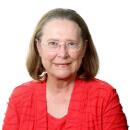Verdugo Views: The Hut was a locus of ‘family’ downtown
- Share via
Paul Baldwin learned to prepare large quantities of food in the Navy, and he was always in charge at family gatherings and barbecues in his Glendale neighborhood. Plus, according to his daughter, he was a party kind of guy. And all of that came together when he purchased the Hut on California at the corner of Orange Street.
“My dad bought the Hut in the early 1970s. It was already called Paul’s Great White Hut. My dad was also named Paul, so it stayed that way,” Mary Baldwin wrote in a recent series of emails.
MORE: Read more of Katherine’s columns>>
The Baldwins owned the Hut for about 13 years: from the early 1970s through the mid-’80s. “We had morning regulars for coffee. Sort of a ‘Cheers’ without alcohol,” she wrote.
Over the years, most of the family worked there. “That little place was so busy, we needed to restock constantly. Sometimes we had to run to the grocery store or to the storage at home,” she wrote. “All family members were at risk of emergency runs to the nearest Smart and Final. I was just out of high school and going to Glendale College when I got roped in.”
The Hut was literally a hut, open to the elements, and difficult to keep clean. Plus, it was open six days a week, so on Sundays, the Baldwin siblings cleaned.
It was an all-cash operation in those days, Mary Baldwin said. Her father would drive by the back door and relieve her of a wad of bills.
The good thing, she added, was that “motorcycle cops hung out there to ticket wrong-way drivers on Orange Street. We were safe, never had a robbery or even a scare.
“We were always busy — even in the rain. My dad knew everyone. Had a joke in his head all the time. The Hut was a family affair with jokes and food and comedy and gossip, with my dad as the ringmaster,” she wrote.
Glendale was very different then, Mary Baldwin noted. “The Galleria was being built, Damon’s was relocating to Brand, and Jeff Williams was thinking about opening a jazz joint in the Mackenzie Hotel — a real fleabag place.
“Soon much of the downtown workforce made their way to our little counter: people from Webb’s, JCPenney, Sears, the banks,” she wrote. “Downtown still had a lot of mom-and-pop stores: Bernice Jr.’s, Polacek Jewelers, the barber shop, etc. Zinke’s, of course. Across the street was the Magic Mirror beauty salon.’’
Their lunch rush became so huge, they had to hire help. “We got to know people so well that when we saw them pull up in their car, I would put their order on the grill,” Mary Baldwin recalled. “It was so much fun — like feeding a big family.’’
After her father had two heart attacks while still in his 50s, Mary Baldwin went to school at night and worked at the Hut during the day. “It was fun. When you are so young, you have lots of energy,” she wrote. “Glendale was really alive then. Good restaurants were opening, nightlife was emerging; it was growing, but still had a real Midwestern homey feel.’’
To the Readers:
Comments on the ‘tent lady’ on Canada Boulevard continue to arrive. A column I wrote on April 14, 2006, about Winifred Marr indicates she purchased the property in 1910 when Canada was still a dirt lane. She brought in a small portable house that burned to the ground in 1928. Well versed in the law, she vowed never to leave and threw up a tent.
Over the years, neighbors brought her food and other assistance. Bee Jolly, a maid for a nearby family, brought her food and newspapers, according to a March 1950 edition of the Glendale News-Press.
Ruth Moore, who grew up in the Verdugo Woodlands, telephoned recently to say, “Miss Marr was very intelligent. The neighborhood in those days was small, everyone knew everyone and she was well respected. We all referred to her as Miss Marr.”
She had an issue of some sort with Pacific Electric and filed suit, Moore said. “She would walk to Hollywood to see an attorney.” When the issue came to trial, she acted as her own attorney. “She won,” Moore said.
The night her house burned, everyone could see the flames. “In the morning, my mother walked down to offer her a room in her house, as did many other neighbors. Miss Marr said, ‘No, I’m not leaving.’”
She had a tent erected and remained at the northwest corner of Canada and Opechee Way for 22 years — until she became ill in the 1950s. A niece cared for her in her final months.
--
KATHERINE YAMADA can be reached at katherineyamada@gmail.com. or by mail at Verdugo Views, c/o Glendale News-Press, 202 W. First St., Los Angeles, CA 90012. Please include your name, address and phone number.
